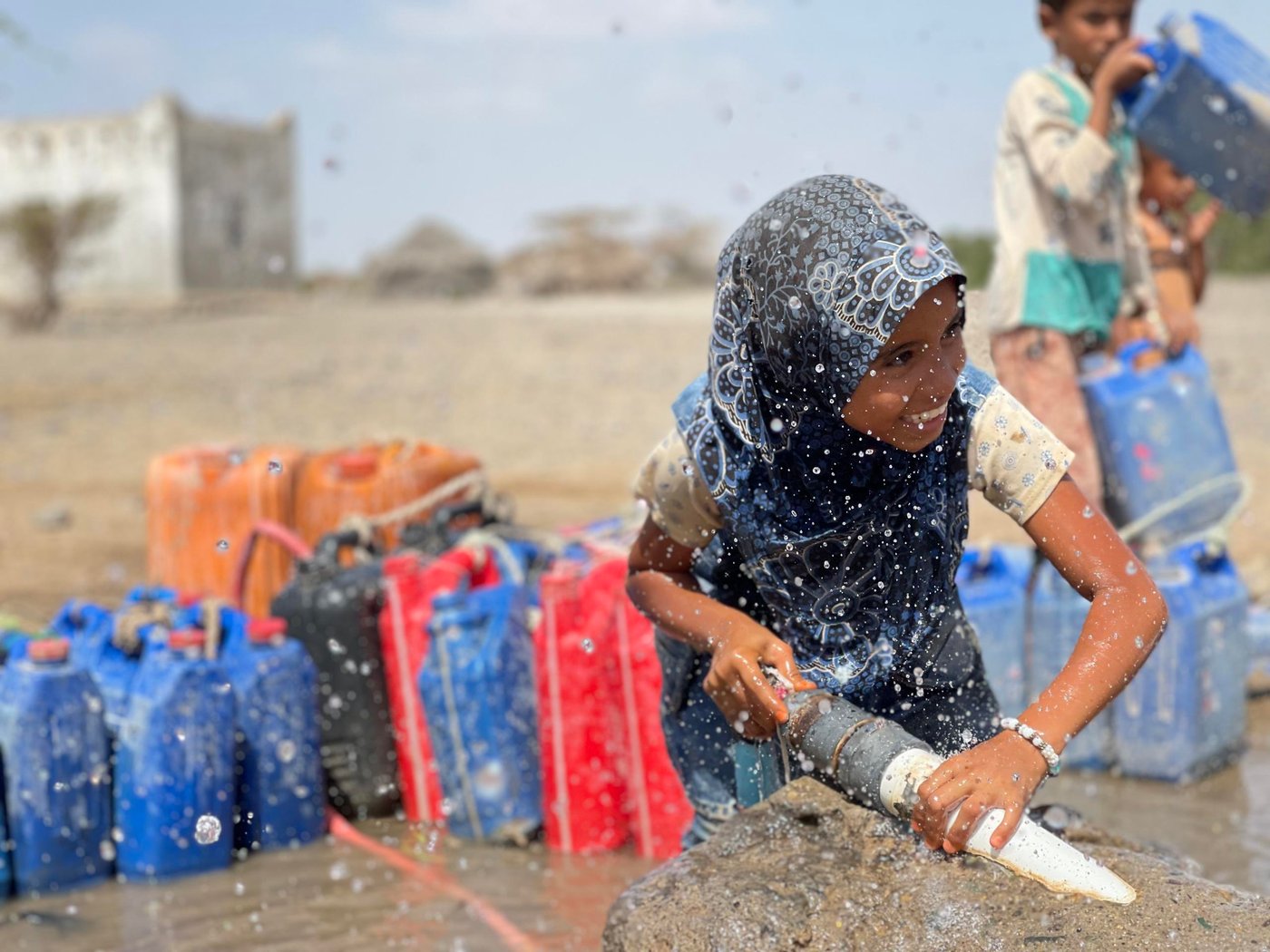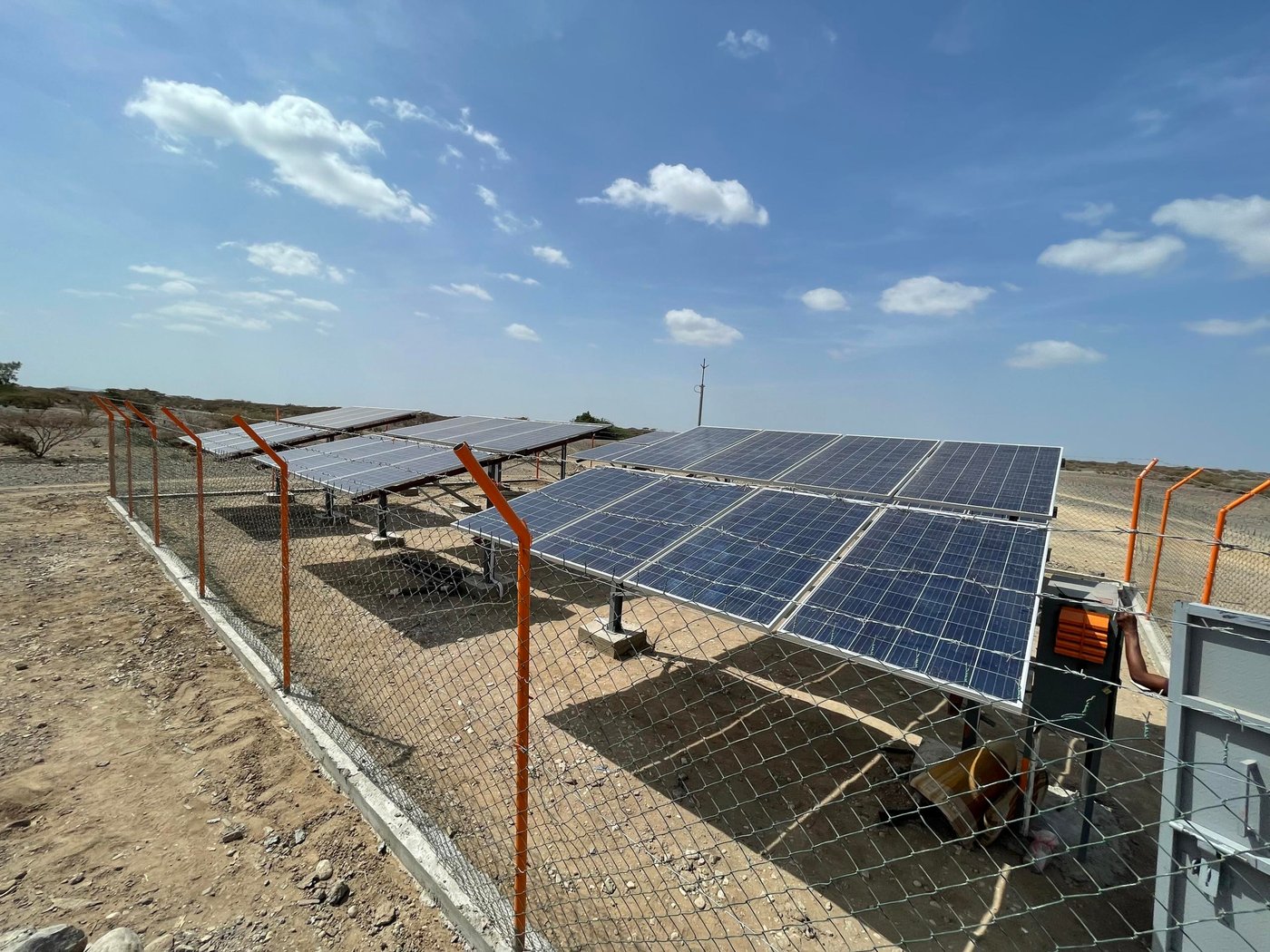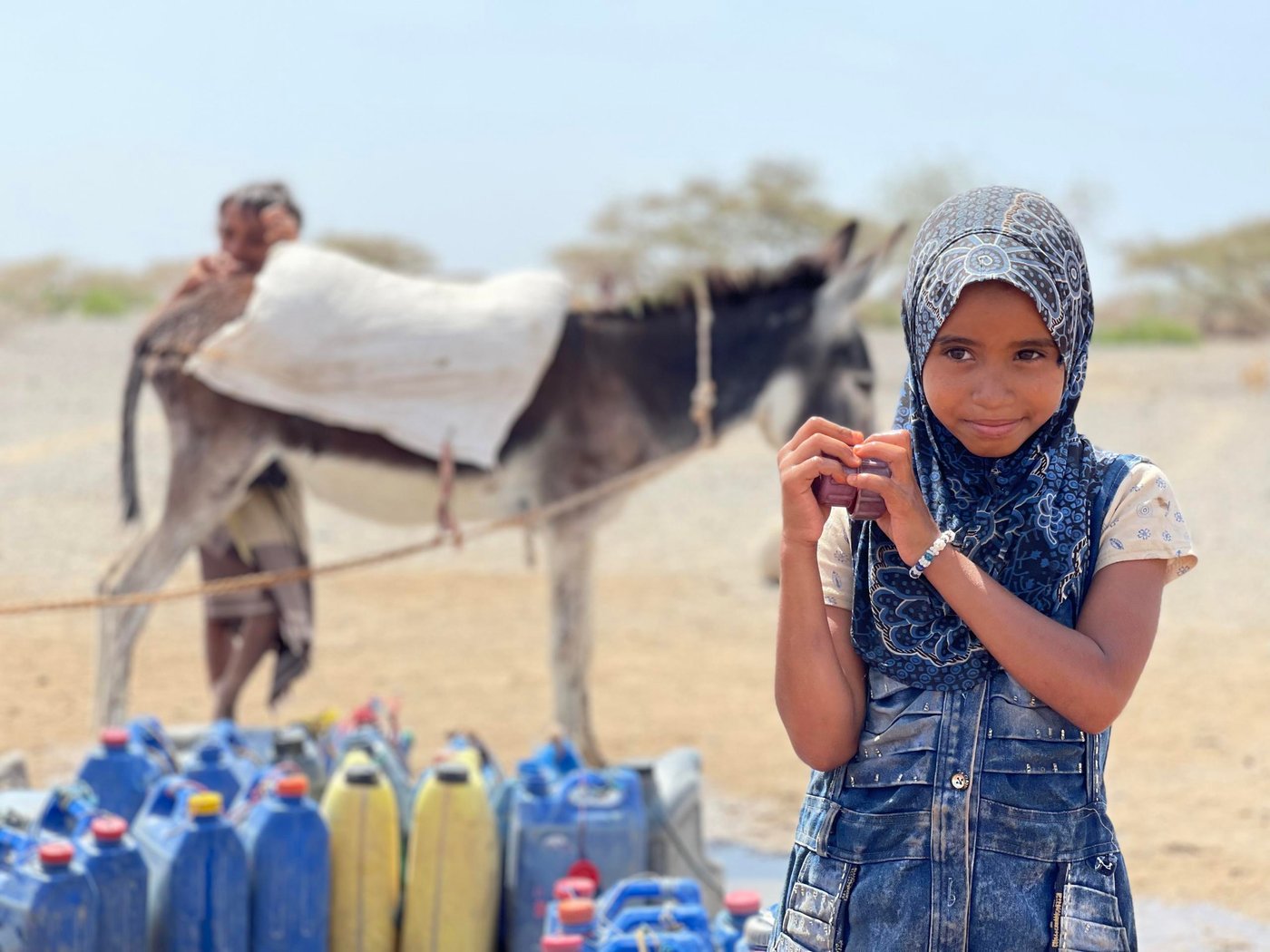It is always a challenge for children like Amal, a second-grade student, to go to school and fetch water. Amal wanted to go to school every day, but this wasn’t possible.
“I don’t want to waste my time waiting in lines for water, but it’s my responsibility,” she says.
Amal is the oldest among her siblings, and thus the task is delegated to her. In her village, fetching water is a hardship that directly affects children’s ability to attend school. Sometimes children fetch water after school, but most of the time, they go during school, missing their lessons.

People in Amal’s village live in a challenging environment, with water pumps out of order due to the lack of fuel. Most cannot afford the prices of water trucks, which has prompted people to travel great distances to other nearby villages to fetch water.
It is estimated that 17.8 million people lack access to safe water and adequate sanitation services in Yemen, according to UNOCHA.
The Norwegian Refugee Council (NRC), thanks to the support from the Yemen Humanitarian Fund, implemented a water project in Amal’s village. NRC built a 50,000-liter water tank with a water pump that works on a solar system. NRC installed a pumping line with 3,000-meter-long pipes.

NRC also built ten water points in different areas over the villages so people don’t have to travel long distances to fetch water and they can have clean drinking water daily. NRC teams also conducted a hygiene promotion campaign and distributed hygiene kits.
Amal still goes to fetch water for her family from the nearest water point, but now she can also attend school daily.
“I don’t take all of the heavy jerry cans, and my hands don’t hurt anymore.”
Learn more about our work in Yemen


